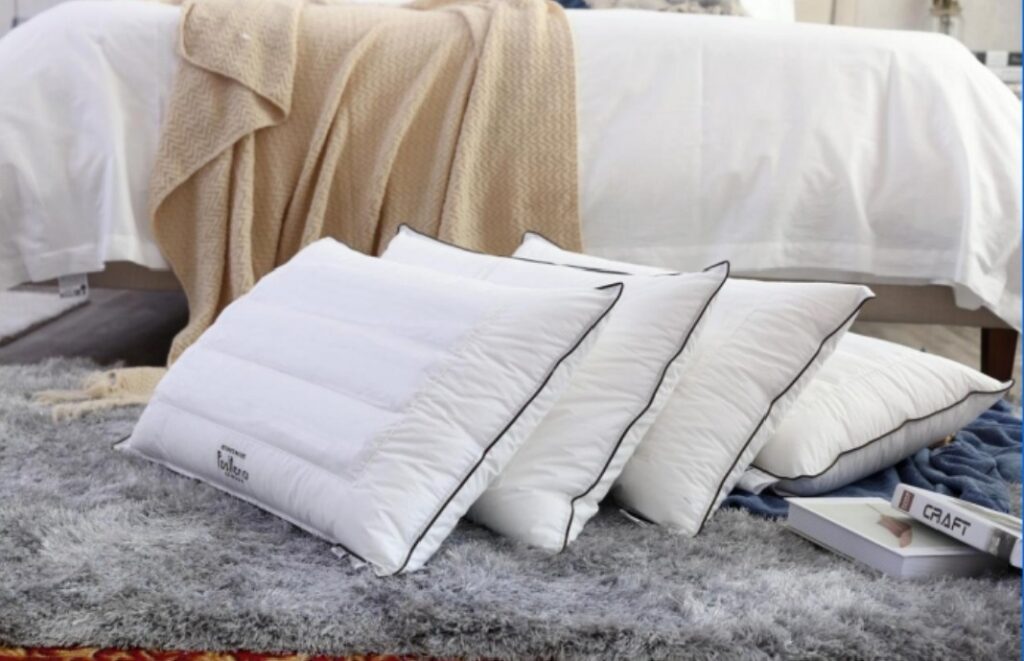As environmental awareness continues to shape consumer behavior, a new generation of homeowners is asking increasingly sophisticated questions about what goes into their products—both literally and figuratively. The world of pillow and cushion fills has undergone a quiet revolution, expanding far beyond traditional synthetic materials to include an impressive range of innovative, sustainable, and naturally derived alternatives. This shift represents more than just a trend; it reflects a fundamental change in how we think about our homes and their relationship to the planet. Choosing eco-friendly fill options now allows consumers to create comfortable, stylish living spaces that align with a values-driven lifestyle while supporting a more sustainable manufacturing ecosystem.
The Rise of Green Materials
The landscape of sustainable fill materials has diversified remarkably, offering options for various needs and preferences. Recycled polyester fiberfill, primarily sourced from post-consumer plastic bottles, has emerged as a frontrunner in sustainable fills. Through advanced processing techniques, discarded plastics are transformed into soft, resilient fibers that perform identically to virgin polyester while diverting waste from landfills and oceans. This closed-loop approach significantly reduces the environmental footprint without compromising on quality or comfort.
For those seeking completely natural solutions, the market offers several remarkable options. Kapok fiber, harvested from the seed pods of the kapok tree, provides a silky, hypoallergenic fill that’s both biodegradable and naturally resistant to moisture and pests. Unlike traditional farming, kapok cultivation requires no pesticides or irrigation, making it one of the most sustainable natural fibers available. Similarly, shredded natural latex, tapped from rubber trees in sustainable agroforestry systems, offers exceptional breathability and biodegradable comfort while supporting forest conservation efforts.
The resurgence of wool as a cushioning material represents another sustainable success story. As a renewable resource that can be harvested annually without harming the animal, wool brings remarkable natural properties to home furnishings. Its natural crimp provides resilient support, while its inherent temperature-regulating capabilities and flame resistance make it both practical and safe. Furthermore, wool production typically involves fewer chemical processing steps than synthetic alternatives, reducing the overall environmental impact.
Performance Meets Principle
The outdated notion that sustainable materials require compromising on quality has been thoroughly debunked by advances in eco-friendly fill technologies. Recycled polyester fiberfill demonstrates performance characteristics identical to its conventional counterpart, maintaining the same hypoallergenic properties, durability, and ease of care that have made polyester fills popular for decades. The manufacturing process has been refined to ensure consistent quality while reducing energy consumption and greenhouse gas emissions compared to virgin polyester production.
Natural fills often outperform synthetics in specific applications. Kapok’s hollow fibers provide natural buoyancy and breathability that synthetic materials struggle to replicate, while its moisture resistance helps prevent mildew growth in humid environments. Wool’s natural temperature regulation creates comfort in both warm and cool conditions, and its resilience ensures that cushions maintain their shape year after year. While some sustainable options may involve higher initial costs, their longevity and specialized performance characteristics frequently deliver superior value over the product’s lifetime. Additionally, many natural fills develop a more appealing character with age, softening and conforming to the user’s shape in ways that synthetic materials cannot match.
Making Informed Choices for Home and Planet
Navigating the world of sustainable fills requires looking beyond marketing claims to understand the complete product lifecycle. Reputable certifications provide crucial guidance in this process. The Global Recycled Standard (GRS) verifies recycled content and ensures responsible social and environmental practices throughout the production chain. Oeko-Tex certification guarantees that textiles are free from harmful chemicals, while organic certifications for natural materials like wool and cotton ensure they were produced without synthetic pesticides or fertilizers.
Supporting brands that demonstrate transparency about their supply chain and material composition represents a powerful form of consumer activism. Companies that openly share information about their sourcing practices, manufacturing locations, and environmental impact are typically more committed to genuine sustainability rather than superficial “greenwashing.” This transparency encourages industry-wide improvements as consumers increasingly reward honest environmental stewardship.
For larger projects, such as furnishing an entire home or specifying materials for multiple units in a development project, establishing relationships with suppliers who specialize in sustainable materials can streamline the process while ensuring consistency and quality. These specialized suppliers often possess deeper expertise in material performance and sustainability metrics, helping designers and homeowners make informed decisions that align with both their aesthetic preferences and environmental values.

Conclusion
Creating an environmentally conscious home no longer requires choosing between comfort, style, and sustainability. The expanding availability of high-performance, eco-friendly fill materials empowers consumers to make choices that benefit both their personal well-being and the planet’s health. By prioritizing recycled content, natural fibers, and transparent sourcing practices, we collectively contribute to transforming the home furnishings industry into a more responsible and sustainable sector. This mindful approach to consumption—whether selecting a single decorative pillow or outfitting an entire living space—reflects a sophisticated understanding of quality that encompasses both immediate comfort and long-term responsibility. For businesses and individuals genuinely committed to sustainable practices, sourcing pillow stuffing bulk from ethical suppliers represents a crucial step in ensuring that environmental values are genuinely woven into every product they create or use, ultimately supporting a manufacturing ecosystem where beautiful design and ecological responsibility exist in perfect harmony.



